Wander through biblical verses, exploring the spiritual symbolism and physical importance of the Euphrates River; there's more to discover than you might expect.

What Bible Verse Talks About the Euphrates River
Just as rivers carve their way through landscapes, so too does the Euphrates River wind its way through the pages of the Bible.
You might have encountered references to this significant waterway in your biblical studies. But, are you aware of the full extent of its textual presence?
From Genesis to Revelation, the Euphrates serves as a spiritual symbol and a physical marker.
Let's unravel the layers of its biblical appearances, and explore why this ancient river continually resurfaces in the Word of God.
Will you follow where the current leads?
Key Takeaways
- The Euphrates River is mentioned in Genesis as one of the rivers from the Garden of Eden, symbolizing the boundary between divine and human realms.
- The Euphrates serves as a geographical boundary in God's covenant with Abraham, embodying divine promise and providence.
- In the Books of Kings, the Euphrates River symbolizes the vast expanse and prosperity of Solomon's kingdom.
- In end-time prophecies like the Book of Revelation, the Euphrates River signifies impending conflicts and the removal of barriers.
Euphrates River in Genesis
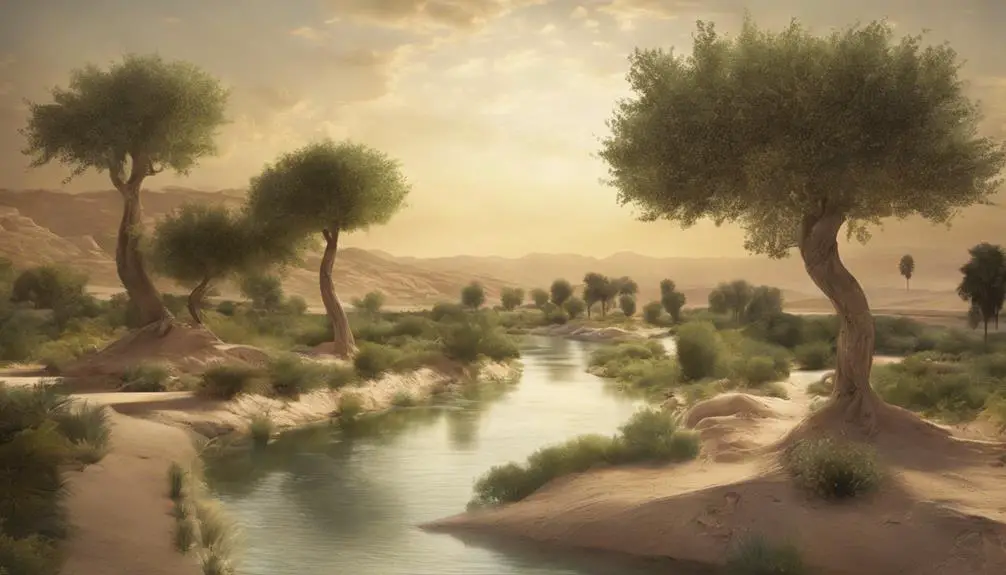
One of the earliest mentions of the Euphrates River is found in the Book of Genesis, where it's recognized as one of the four rivers branching from the river flowing out of the Garden of Eden. This context is significant, as it places the Euphrates within the framework of the biblical creation narrative, establishing it as a vital element of the earliest human environment.
The river is named in Genesis 2:14, and its inclusion in this creation narrative is no trivial matter. You see, the Euphrates isn't just a geographical feature; it's intertwined with the Bible's theological and cultural narratives. The river's association with the Garden of Eden, a place of divine creation and human inception, helps to frame the Euphrates as a life-giving entity.
Further, the Euphrates establishes a physical and symbolic boundary between the realms of the divine and human. Its mention in Genesis suggests a world organized and segmented by God, a concept that carries significant weight in biblical interpretation. Thus, understanding the Euphrates' role in Genesis allows you to better grasp the theological and cultural underpinnings of this ancient text.
Euphrates References in Exodus
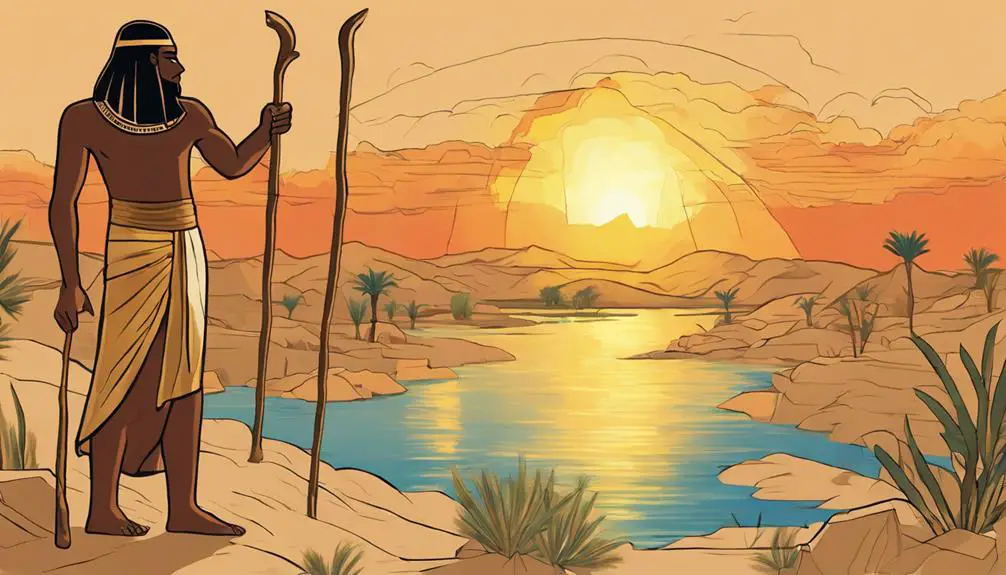
Delving into the Book of Exodus, you'll find the Euphrates River serving a pivotal role in the narrative, acting as a geographical boundary in God's covenant with Abraham. This river, woven seamlessly into the fabric of the narrative, embodies more than its physical presence; it symbolizes the extent of the land promised to Abraham's descendants.
Exodus 23:31 delineates this promise: 'I will establish your borders from the Red Sea to the Mediterranean Sea, and from the desert to the Euphrates.' Here, the Euphrates is cemented as the northeastern boundary of the land God promised to the Israelites. This verse, you'll note, forms a theological context in which the Euphrates River isn't simply a geographical marker, but an affirmation of divine promise.
Analyzing further, you'll perceive the Euphrates as a conduit of God's providence, a physical reminder of an intangible promise. The river's recurrence in Exodus underpins its significance in the biblical narrative, reinforcing its role as a symbol of the covenant between God and His people. Thus, the Euphrates River in Exodus transcends its earthly presence, becoming a spiritual beacon in the unfolding story of God's chosen people.
Euphrates in the Books of Kings
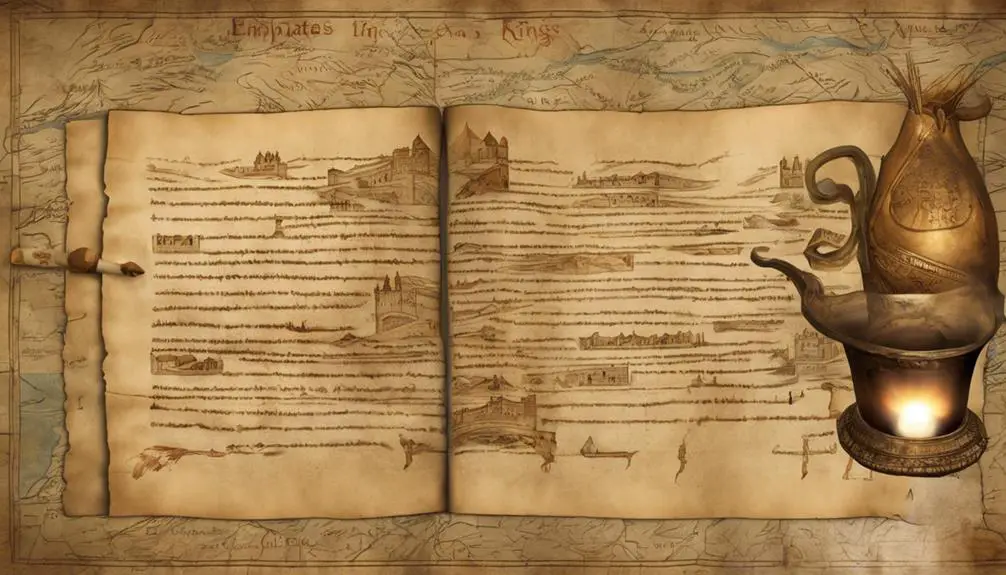
Shifting our focus to the Books of Kings, you'll encounter the Euphrates River again, this time playing a crucial role in the narratives of Solomon and his expansive kingdom. It's a symbol of the vast expanse of Solomon's territory, showcasing the grandeur of his reign, and acting as a geographical boundary for his kingdom.
In 1 Kings 4:21, you'll find a clear delineation of Solomon's realm, stretching from the Euphrates River to the land of the Philistines, and onward to the border of Egypt. This isn't mere geographical detailing. Instead, it's a testament to the prosperity and power of Solomon's reign. The Euphrates, as a significant geographical and cultural landmark, underscores the magnitude of his kingdom.
Moreover, the Euphrates isn't just a boundary marker. It's a benchmark of God's promise to Abraham in Genesis 15:18, where the Euphrates is mentioned as the farthest extent of the promised land. Thus, Solomon's rule reaching the Euphrates symbolizes the fulfillment of this divine pledge. It's not just about physical boundaries but about the spiritual promises and their manifestation in the historical and geographical reality.
Euphrates River in Prophetic Books
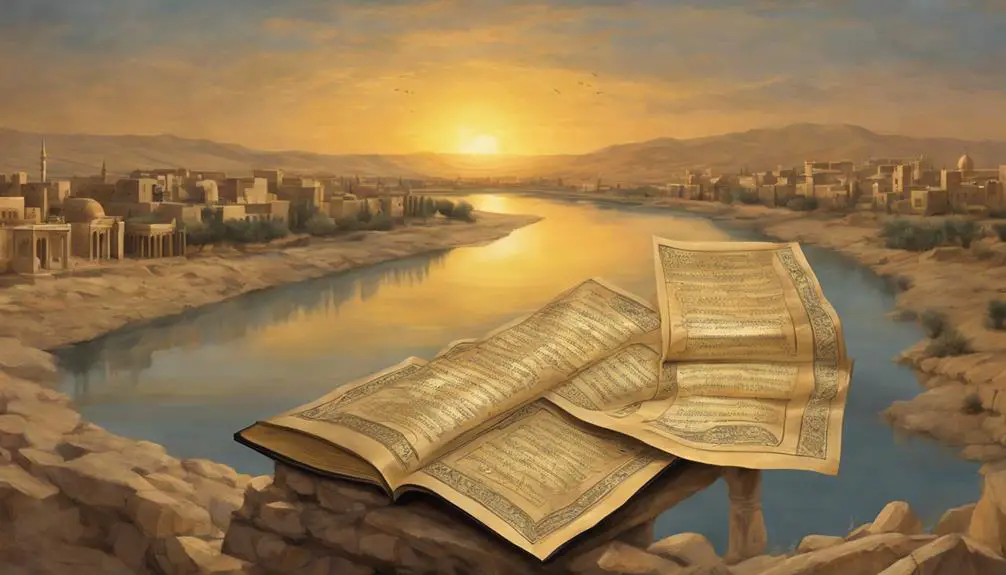
Turning your attention to the prophetic books, you'll notice the Euphrates River emerges as a significant symbol, often associated with divine pronouncements and prophetic visions. The river's mention in these books often signifies critical turning points in the narrative. It's a symbol of divine authority and judgment, often used to signify a border or boundary.
Incorporated below is a table summarizing the key appearances of the Euphrates River in three pivotal prophetic books:
Book |
Verse |
Significance |
|---|---|---|
Jeremiah |
13:4-7 |
Represents Israel's downfall |
Ezekiel |
27:23 |
Symbolizes trade and prosperity |
Isaiah |
8:7 |
Illustrates Assyrian invasion |
In Jeremiah, the Euphrates River signifies Israel's downfall. The prophet is instructed to hide a linen belt by the Euphrates, which, when retrieved, is spoiled and useless — a metaphor for Israel's spiritual condition.
Ezekiel uses the Euphrates as a symbol of trade and prosperity, showcasing Tyre's connections to many nations.
Lastly, in Isaiah, the river is a metaphor for the powerful Assyrian invasion, overpowering Israel as the Euphrates overflows its banks.
In each instance, the Euphrates River is more than just a geographical feature. It's a profound symbol, adding depth to the prophetic messages.
Euphrates in the Book of Revelation

In the Book of Revelation, you'll encounter the Euphrates River once again, this time serving as a noteworthy player in the unfolding of end-time prophecies. Specifically, Revelation 9:14 speaks of four angels 'bound' at the Euphrates, set free to kill a third of mankind. This verse suggests a containment of destructive forces, held back until the appointed time.
Further, Revelation 16:12 prophesies that the Euphrates will dry up to prepare a way for the 'kings of the East.' Scholars interpret this drying up as a removal of barriers, making way for end-time events. This could be a literal drying or symbolize political changes that facilitate the prophecy's fulfillment.
You'll also note how the Euphrates, historically a boundary for Israel's enemies, reinforces themes of opposition and conflict. The Euphrates' drying up removes natural defense lines, exposing Israel and the world to ultimate conflicts.
Conclusion
You've journeyed through the Bible, exploring references to the Euphrates River, from Genesis to Revelation. You've seen its significance in historical context and prophetic symbolism.
It's clear that the river's repeated mention isn't merely geographical; it's deeply rooted in spiritual narratives.
So, whether it's marking Eden's boundary, or serving as a symbol in prophetic visions, the Euphrates plays a crucial role, weaving a fascinating thread through the rich tapestry of biblical literature.

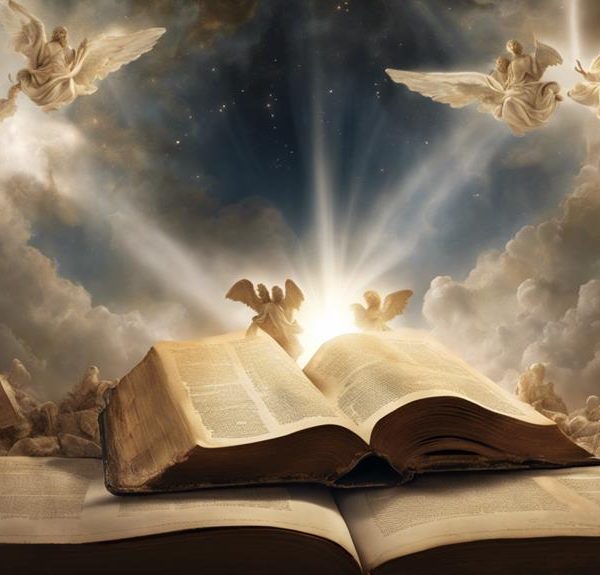

Sign up